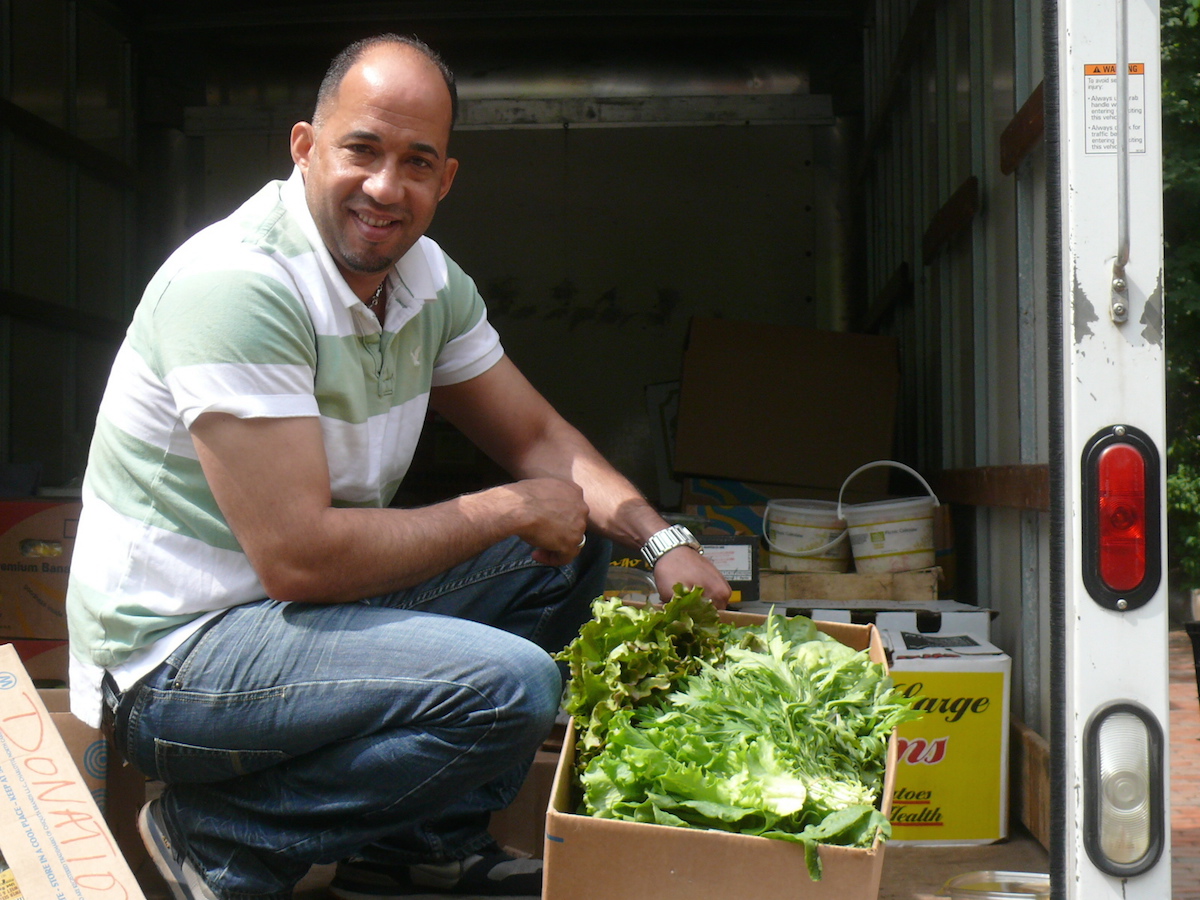Food For Free Is Saving Tons of Healthy Food From the Garbage
Spring is here, and with it comes the start of farmers’ market season. But for Sasha Purpura, that means more than fresh raspberries and sunflowers—it’s one more way to stop food waste.
Purpura is the executive director of Food For Free, a Cambridge-based non-profit that rescues unused food from farmers’ markets, grocery stores, bakeries, and universities and donates it to food pantries, schools, and individuals in need of healthy food. “Our mission is to address hunger by capturing healthy food that would otherwise go to waste and distributing it to the emergency food system where it can go to people in need,” Purpura says. “That healthy food aspect is key, because when you’re talking about hunger in America, it can often go hand in hand with obesity. It’s really about a lack of access to nutrition; it’s not just a lack of access to food.”
That’s why farmers’ markets are such an integral part of Food For Free’s work—they provide extremely fresh, nutritious food for consumers, while simultaneously aiding farmers. “[Farmers] don’t want to load all these fresh greens into the truck and go back home to give them to the chickens or put them in the compost,” she says. “You’d love to see that food go to people over chickens and compost.”
Purpura says the program has been such a hit at its 11 partnering farmers’ market locations that many farmers not only give away their surplus food, but bring extra just to donate. Food For Free also uses the produce from its own farm, which operates in partnership with Lindentree Farms in Lincoln.
Food For Free is unique in its ability to make the most of fresh produce. Many food pantries lack sufficient transportation and cold storage, limiting their stock to mainly non-perishable items, which tend to be less nutritious. That’s where Food For Free comes in—it aims to deliver produce just before pantries open, so that it can be given out right away. “We’re able to be flexible enough to bring it to folks to alleviate both the transportation and the storage challenges they face,” Purpura says.
The organization began collecting prepared meals and produce last year after Whole Foods Market in Cambridge began safely freezing its meals and donating the items along with other groceries. The dining halls at Harvard and MIT came next—Harvard’s dining services donates 2,500 pounds of food each week, and the MIT program is set to expand starting in September—and Purpura says she hopes more colleges are to come.
The concept of food rescue has become more common in the last few years, Purpura explains, in part because of legislation like the Massachusetts Organics Waste Ban, which fines any organization that throws away more than a ton of organic refuse each week. “There’s an incentive [to donate] now, and particularly with universities and large institutions,” Purpura explains. “It’s helping to bring even more awareness to this issue, and hopefully with that ban, and with the awareness that comes up around it, more organizations will be interested in donating.”



